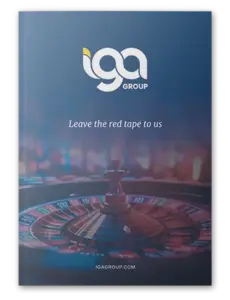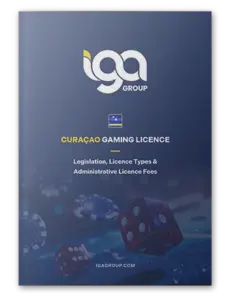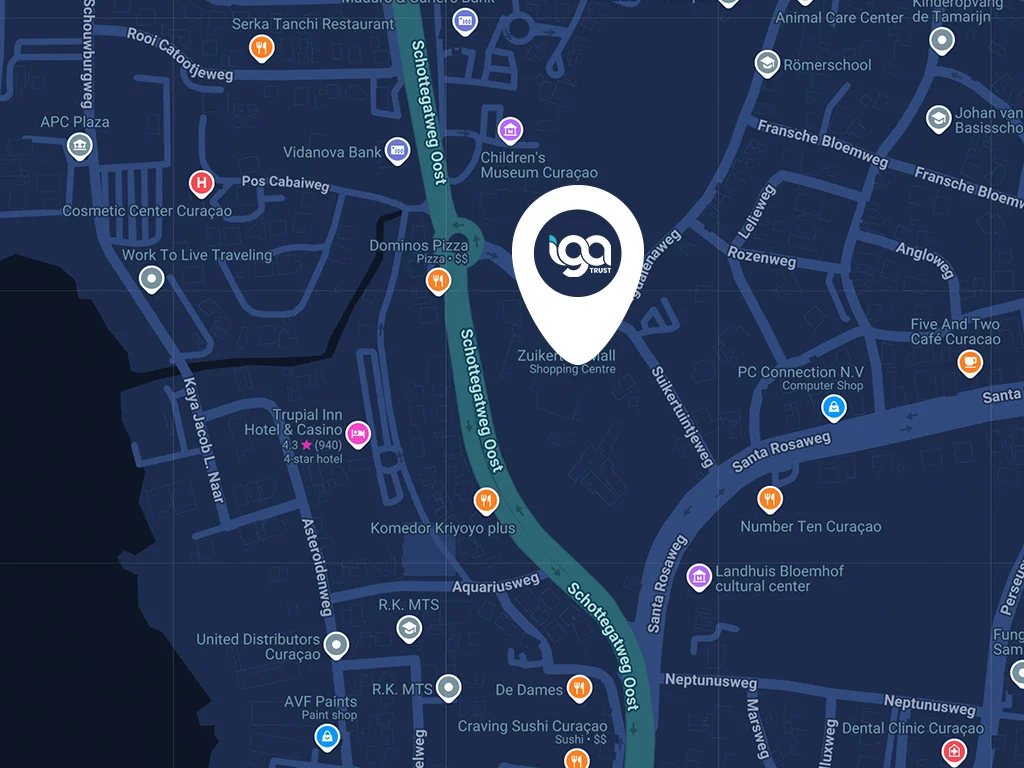Curaçao
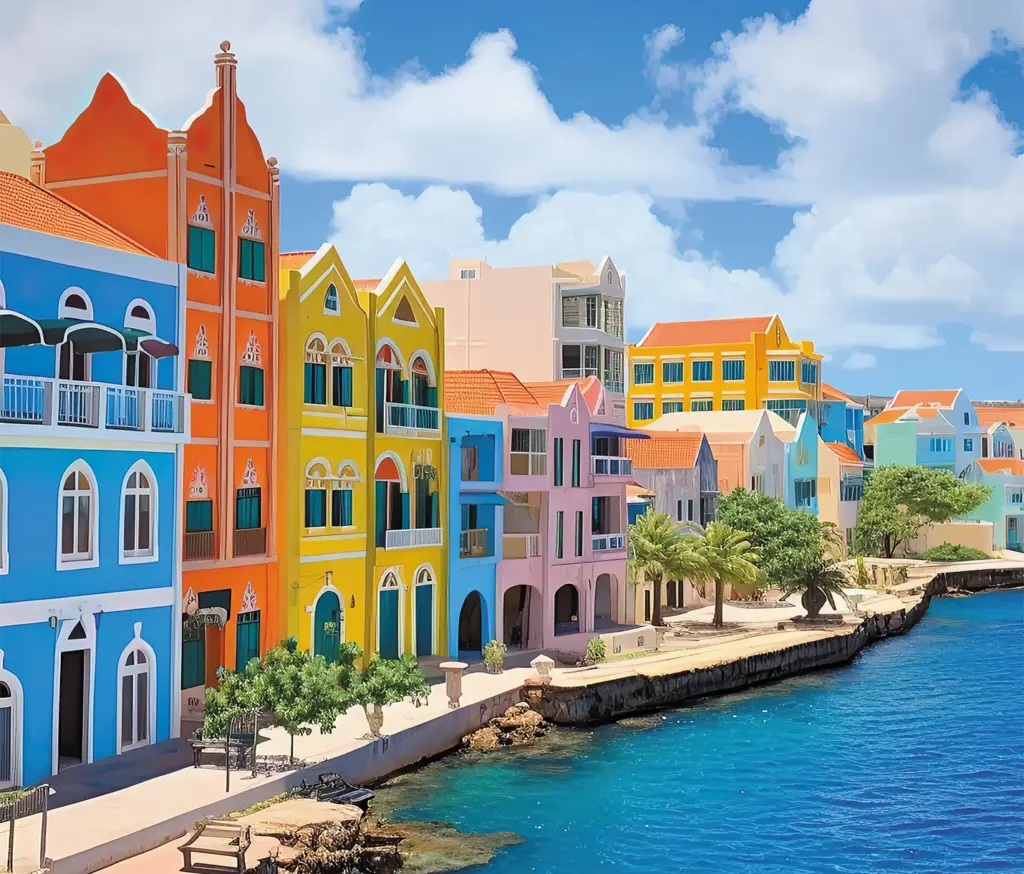
CURAÇAO IS A LONG-STANDING PLAYER IN THE ONLINE GAMBLING INDUSTRY AND ONE OF THE OLDEST AND MOST POPULAR iGAMING LICENSING LOCATIONS IN THE WORLD
Situated in the southern Caribbean Sea, Curaçao is a constituent country of the Kingdom of the Netherlands, offering political stability and a rich history of facilitating online gaming operations.
Long a favored jurisdiction for its simplicity and affordability, Curaçao’s recent regulatory reforms aim to enhance its credibility and ensure compliance with international standards.
Curaçao offers one of the most cost-effective licensing options, with minimal up-front investment and low ongoing costs. The regulatory burden is light, making it attractive for operators who need a quick entry into the market. The tax structure is also highly favourable, with no gaming-specific tax, meaning operators pay only a small annual fee and standard corporate tax. This makes Curaçao an ideal jurisdiction for start-ups and operators with tight budgets.
Key Contacts
Downloads
Useful Links
Key Information
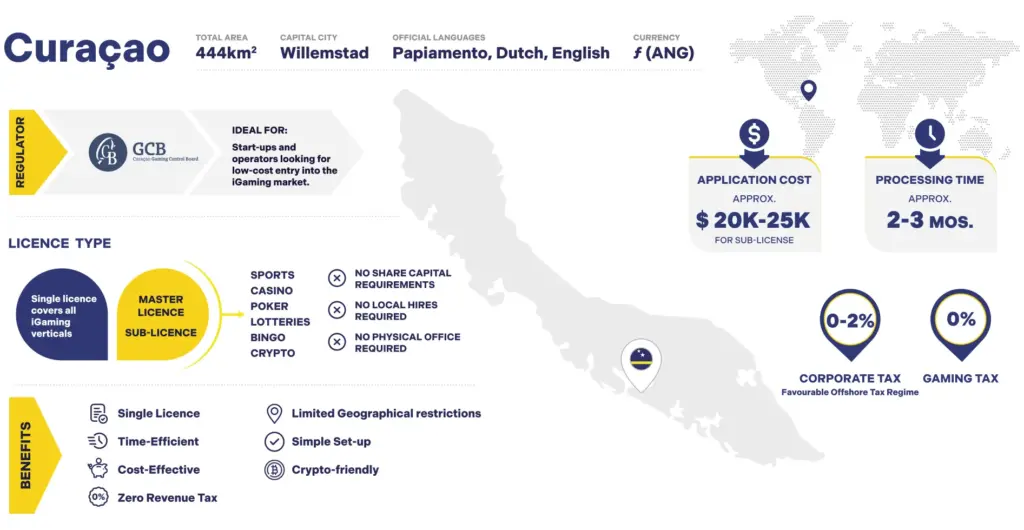
Benefits
FAVOURABLE TAX LAWS, COMFORTABLE LEGISLATION AND A STRAIGHTFORWARD APPLICATION PROCESS
Low-Cost Licensing
Curaçao’s licensing fees and taxes are significantly lower than those of other jurisdictions, making it one of the most affordable options.
Fast Licensing Process
Curaçao offers a streamlined application process, allowing operators to obtain licences quickly, making it ideal for those looking to launch rapidly.
Global Market Access
A Curaçao licence is recognised internationally, allowing operators to serve markets worldwide, excluding jurisdictions requiring local licences.
Simple Regulatory Requirements
Curaçao offers lighter compliance obligations than European jurisdictions, reducing the administrative burden on operators.
Flexible Licence
Curaçao’s single licence covers all iGaming activities, providing operators with the flexibility to offer a range of gaming services under one licence.
Requirements
Applicants must be legally established and recogniSed entities, requiring the registration of a company in Curaçao, AND MUST MEET RIGOROUS CRITERIA SET BY THE GCB, PROVING THEIR FINANCIAL STABILITY, INTEGRITY, AND OVERALL COMPETENCE.
During the application process, the Gaming Control Board (GCB) of Curaçao primarily focuses on the integrity of the applicant, the financial integrity of the organisation and the accessibility of the gaming channels

01
Legal Entity
02
Integrity & Due Diligence
The Curaçao Gaming Authority (CGA) conducts a thorough integrity assessment of all applicants, including beneficial owners and key decision-makers. Anyone convicted of financial crimes such as fraud or money laundering in the past eight years will be disqualified.
03
Financial Stability
Applicants must demonstrate sufficient financial liquidity to ensure business continuity and the ability to pay out player winnings.
04
Compliance with AML/CFT Regulations
Licensees must comply with Anti-Money Laundering (AML) and Counter Financing of Terrorism (CFT) directives. This includes appointing a compliance officer and implementing customer due diligence (CDD) and know-your-customer (KYC) procedures.
05
Technical and Operational Requirements
All gaming software must be tested and certified by an approved laboratory to ensure fairness and integrity. Any third-party games used must also be certified.
06
Player Account Management
All player transactions must be conducted exclusively through their accounts. Licensees must maintain a separate account for player deposits and winnings and provide players with access to their transaction history and account balances.
07
Responsible Gaming
The license holder shall, at all times, in accordance with further regulations, policies, procedures, rules or guidelines, ensure that critical information about players, their game transactions and their financial transactions remains accessible to the CGA through a server hosted in a Tier IV-certified data centre located in Curaçao.
08
Reporting Obligations
Licensees must submit regular reports to the CGA, including financial and operational updates. Reports must be submitted through the CGA’s online portal.
* Kindly be advised that LOK regulations are currently being implemented by the GCB and may be subject to change. We will update this section regularly as any change occurs. Last corrected on the 21st of March 2025.
Our Team in Curaçao
Get to know the passionate and experienced professionals who make up our dynamic Curaçao team.
Each member brings unique expertise and insight in their mission to provide exceptional service to each and every client. We believe that getting to know us personally is an important part of building trust and a successful business relationship.
IGA Trust
Meet Phaedra
Contact us
IGA Trust
Come and meet us at our office!
The team at IGA Trust in Curaçao is committed to providing comprehensive solutions that exceed your expectations.
We prioritise prompt, high-quality service, whether it’s corporate management, financial expertise, tax and legal support, risk and compliance mitigation, or gaming licence assistance.
Drop by during office hours and to discuss the future of your business!
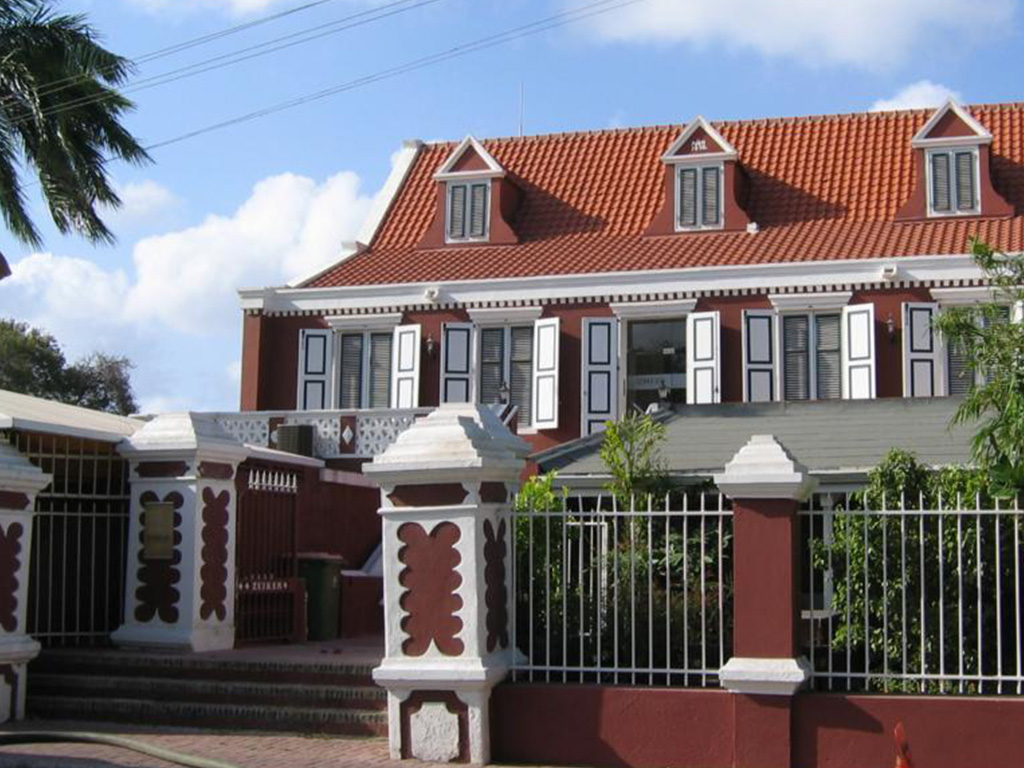
Meet Phaedra
Ask Phaedra about your licensing and compliance needs!
Phaedra Hanst brings extensive expertise to the IGA Group team with her Masters degree in Media & Business from Erasmus University and 7 years of experience in the retail sector. Her expertise in financial analysis, operations management, workplace optimization, marketing strategy, and consultancy make her a valuable addition to the team. She specializes in data analysis, software integration and optimization and team management.
“My ultimate goal is to go above and beyond for our clients, ensuring that we provide exceptional service that not only meets but exceeds their expectations.”

Phaedra Hanst
HEAD OF OPERATIONS CURAÇAO
Contact us
Are you ready to launch your business?
Our aim is to make your journey as smooth as possible!
Contact us via [email protected] or +599 9 529 9059 to schedule a meeting and discuss how we can support your business needs.
Visit us at our Willemstad office for a consultation or contact us to schedule a meeting and discuss how we can support your business needs.
Frequently Asked Questions
What is the application timeframe for a Gaming License?
What is the licence term?
Can gambling companies in Curaçao be owned by non-residents?
Are there any residency requirements for company Directors?
What are the authorised capital requirements?
What taxes must a licensee pay?
Which countries are restricted to licensees?
Licensees are generally allowed to operate worldwide but must comply with local laws in each country they target.
What are the essential components of a licensee operation?
Curaçao requires basic operational components such as game servers and payment systems, but it is more lenient than other jurisdictions.
Where can I find the regulatory framework?
Curaçao’s regulations are issued by the Curaçao Gaming Control Board and can be found on its official website.
Need assistance?
Whether you have queries, need further assistance or would like to request a quote for any of our services, please don’t hesitate to contact us.
Leave your phone number and we’ll make sure to call you back.



